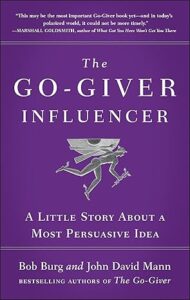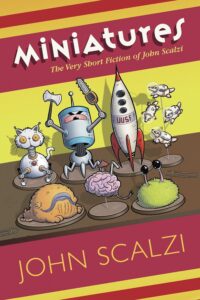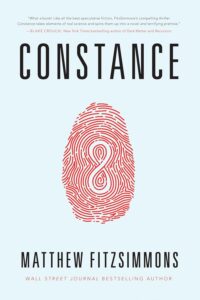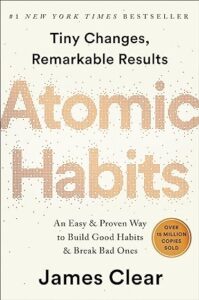I’m a fan of the Go-Giver books. Having already read two books in the series that I liked a lot, The Go-Giver and The Go-Giver Leader, it was an easy decision to put The Go-Giver Influencer on my reading list. Authors Bob Burg and John David Mann have a way of weaving important business and personal development concepts into stories that makes those concepts easy to digest and remember. It also makes it easier to see how the concepts can be applied to real-life situations.
Continue readingState of the Blog and 2023 review
Since I started blogging back in November 2012, I like to do an annual recap at the end of each year. The year 11 recap has been delayed, but you know what they say – better late than never!
Here’s a look back at the year that was in 2023, and the site and blogging plans for the remainder of this year.
Continue readingBook review: Privacy Is Power
Privacy is a topic I take seriously, especially as it relates to the data we generate and share online. I’m sure that I come across as paranoid at times, if not all the time, with my refusal to engage in social media and my concerns over browser usage and the sites I frequent while online. Yes, maybe I can take it to the extreme, but the more I read about how companies, governments, and the powers that be use our data, I worry that I may not be taking it seriously enough.
It’s articles like this one that showed up in my feed from Smashing Magazine, Pushing Back Against Privacy Infringement on the Web, that raises online privacy warning flags for me. Our personal data is being used, sometimes for our benefit, sometimes against us, and always for the benefit and profit of the companies that collect, analyze and trade it.
The article is a short read and provides a good overview on the importance of privacy on the internet. But it was the mentions in the further reading that intrigued me. I wanted to go deeper into why privacy is important, which led me to reading Privacy Is Power: Why And How You Should Take Back Control of Your Data by Carissa Veliz.
Continue reading2024 Fitness goals
I’m a believer in “you get what you measure.” It’s why I set fitness goals for the year. It provides motivation and something to track my progress against.
I’ve tracked my fitness goals each year since I started blogging back in 2014. This year is no different. Even though it is already February, I’ve been tracking my fitness activities against the goals in this post since the beginning of the year.
I track progress in three areas – working out, physical activity, and diet. Let’s start by looking back at last year, and then look at plans for 2024.
Continue readingBook review: Miniatures – The Very Short Fiction of John Scalzi
I like short stories. Done well, it’s a great format that engages you, tantalizes you, and presents a big enough idea and/or leaves enough open ends to keep you thinking about the story well after you finish it.
My typical rhythm is to read a short story (or two) between the typical books I read for entertainment. Since most of my entertainment books are built around science fiction, it’s a bonus when I can find a good collection of sci-fi shorts.
One such collection that appeared in my recommendations was Miniatures: The Very Short Fiction of John Scalzi which is, of course, by John Scalzi. Scalzi is a prolific writer. I normally see a lot of his long-form novels in my recommendation feed, so I figured reading some of his short stories would be a good way to see if I liked his writing enough to read some of his longer format works.
Continue readingPeak beard
Just when I thought I was going to take a year off from the beard, I changed my mind. I let it go fairly long this year. I didn’t do any trimming from beginning of November to mid-December. The six week period is about as long as I’ve went without shaving, and probably the longest I’ll ever go. Of course I’ve said that before, so there’s no guarantees.
Anyway, the picture to the right is an image of peak beard. It got to the point of being pretty uncomfortable (and very gray), so I’m not looking forward to growing it out this long in the foreseeable future.
Continue readingBook review: Constance
What do the books Infinite, Interference, Bandwidth, and Constance have in common?
Give up? It’s not obvious.
They’re all books that I discovered through Amazon’s First Reads program. If you’re an Amazon Prime member and like to read, I highly recommend this program. It’s a great way to find new authors and build out your reading list, which is why I like it so much. It also doesn’t hurt that I’ve discovered my share of great books (and authors) through it.
Oh, and the other thing these books have in common is that they’re all science fiction books based on hard science fiction. In the case of Constance by Matthew Fitzsimmons, the plot of the story is built around cloning, specifically mind uploading and replication into another human body.
Continue readingMy 2024 reading list
As I have done since 2014, here is my reading list for 2024.
According to Goodreads, there are over 220 books on my ‘Want to Read’ list. These can be broken down into two categories: my fun reads, of which there are ~140 titles, and my morning reads, of which there are ~80 titles. While these numbers appear large, it’s an improvement from last year when there were over 230 books in the queue.
Continue readingBook review: Atomic Habits
In addition to sharing book recommendations, receiving books as gifts is another fringe benefit of having other readers in the family. One of those gifts I received last year was Atomic Habits by James Clear. It was immediately added to my reading list. While I’m just getting around to posting the review, I finished reading the book last summer.
Continue readingBooks to read in 2024
Looking to fill-in the gaps in your reading list for 2024? Out of the 35-plus books I read in the past year, these are the books that I enjoyed the most.
I’ve broken the recommendations into 3 categories – general recommendations (fiction, mostly from the sci-fi genre), personal development, and business. I’ve also included a list of “bonus reads” at the end. These are the books that I enjoyed a lot but wouldn’t say that you have to add to your 2024 list. These are entertaining reads that you can use to fill in any holes in your list.
Continue reading





